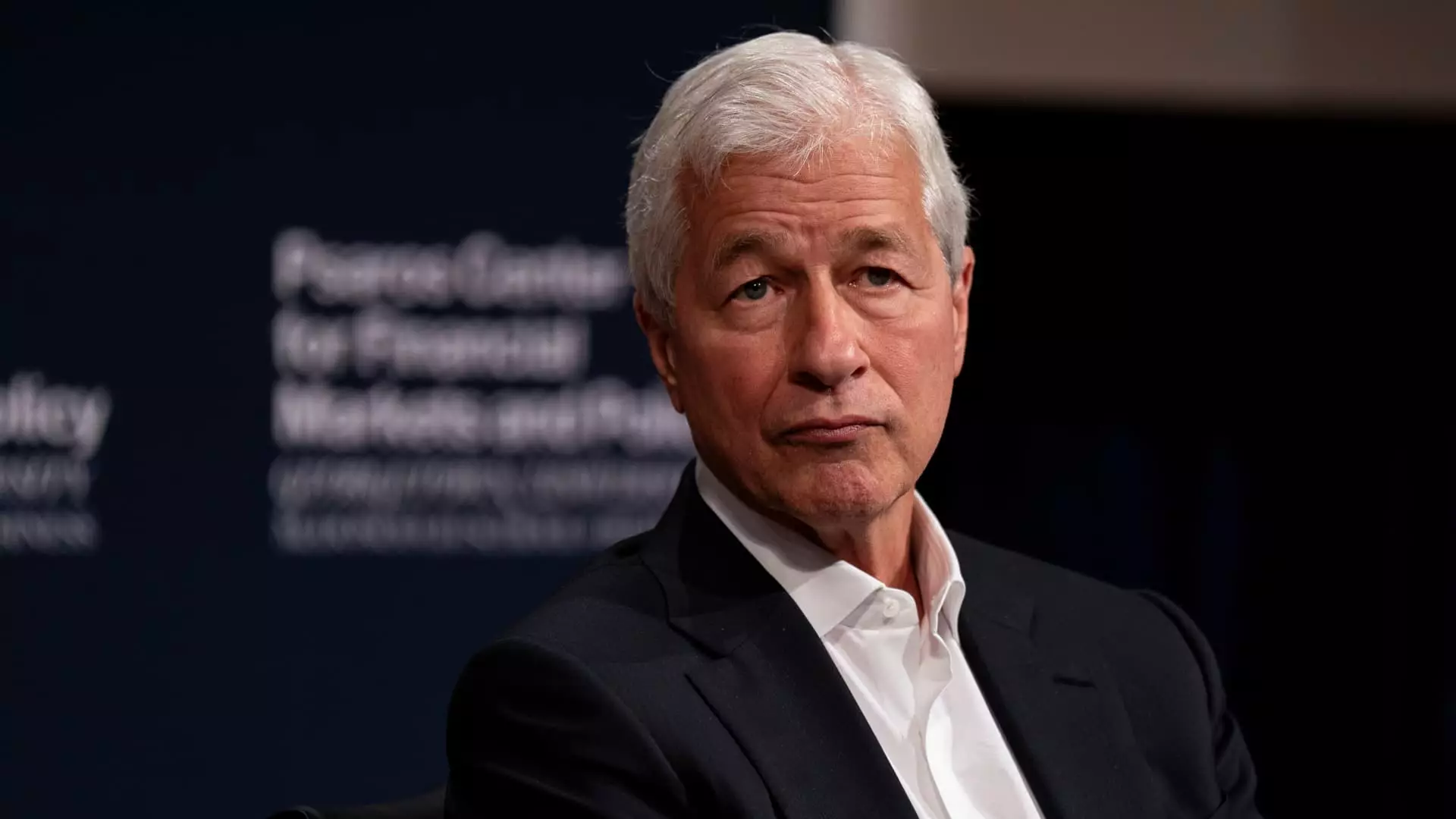In a recent discussion, Jamie Dimon, CEO of JPMorgan Chase, weighed in on the contentious topic of tariffs introduced by the Trump administration. His perspective presents a nuanced view that highlights both potential benefits and risks associated with tariff implementation. While fears of a trade war loomed large, Dimon suggested that these economic measures could serve a greater purpose in protecting national interests and redefining trade agreements. This article aims to dissect these viewpoints, explore the implications of tariffs on global trade, and examine the broader economic landscape affected by such policies.
Dimon described tariffs as instruments that could either stimulate growth or trigger inflation, depending on their application. This notion contradicts the conventional wisdom that views tariffs predominantly as harmful to the economy. The ongoing debate often devolves into whether tariffs are ultimately constructive or destructive. Dimon’s assertion that tariffs can be reclassified as economic weapons underscores the idea that they are not inherently good or bad but dependent on their deployment.
The lack of specificity in Dimon’s comments reflects uncertainty in corporate America regarding how tariffs might be structured and enforced. The U.S. market thrives on predictability, and sudden changes in trade policy can disrupt established supply chains and business models. Therefore, while Dimon remains cautiously optimistic, he acknowledges the volatility that tariffs can introduce into the marketplace.
The overarching theme of national security intertwines with economic stability in Dimon’s comments. He suggests that if increased tariffs lead to a slight rise in inflation but ultimately safeguard national interests, then such measures could be justified. Tariffs are often leveraged as a mechanism for protecting domestic industries from foreign competition, ostensibly defending jobs and fostering economic resilience. However, this perspective raises critical questions about the long-term sustainability of such an approach.
The potential for tariffs to provoke retaliatory measures from trading partners adds another layer of complexity. Historical precedents, such as the Smoot-Hawley Tariff of 1930, illustrate how protective tariffs can spiral into trade wars that ultimately harm the economy. Analysts caution that while tariffs may achieve temporary gains, they can also trigger a backlash that negates those benefits, leading to higher prices for consumers and strained international relationships.
In an interconnected world, the role of corporate leaders in shaping public discourse around tariffs is crucial. Dimon’s remarks echo sentiments shared by other financial executives, including Goldman Sachs CEO David Solomon, who posited that tariff shifts might rebalance trade agreements in a manner favorable to U.S. growth. Both leaders highlight the importance of careful management and timely implementation of trade policies to maximize their potential benefits.
Solomon’s assertion that such moves can be constructive, if executed thoughtfully, emphasizes the need for a strategic approach to tariff negotiation. Rather than viewing tariffs strictly as a means of generating revenue, corporate leaders advocate for a broader dialogue focused on long-term economic health.
As the U.S. navigates an increasingly complex global economic landscape, the conversation surrounding tariffs will remain critical. Dimon’s perspective invites policymakers to consider how tariffs can serve dual purposes—protecting national interests while fostering growth. However, the risk of exacerbating inflation and inciting trade wars necessitates a measured approach that prioritizes clear communication and strategic negotiation.
Ultimately, the discourse on tariffs must evolve beyond binary perspectives of support or opposition. By actively engaging in discussions about the implementation and consequences of tariffs, corporate leaders and policymakers can work collaboratively to formulate strategies that enhance economic stability and reinforce national security. In doing so, they may unravel the potential of tariffs as catalysts for constructive change in an ever-evolving global trade environment.

